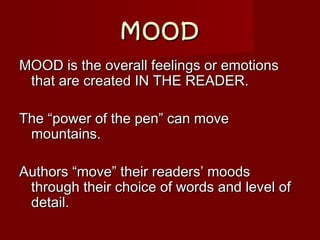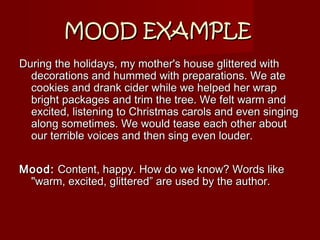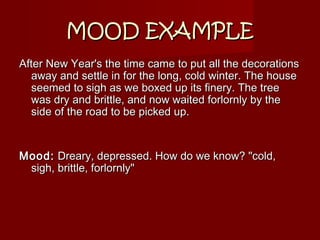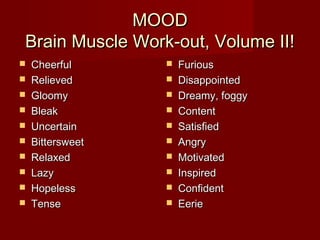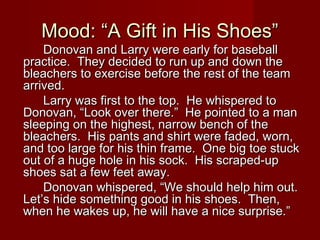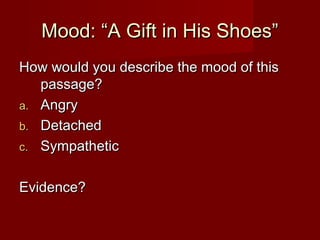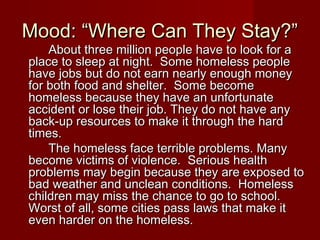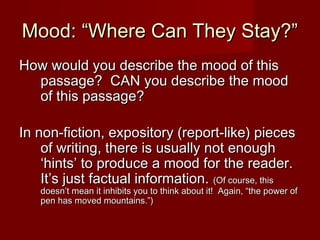This document discusses the differences between tone and mood in writing. Tone refers to the author's attitude toward the subject, which can be inferred through descriptive word choices. Mood, on the other hand, refers to the overall feelings or emotions created in the reader as a result of the author's word choices and level of detail. Several examples are provided to demonstrate how tone and mood are established and can be different things. The document emphasizes building vocabulary to better identify tones and moods in passages.
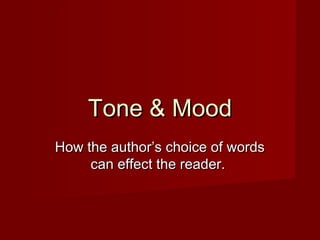
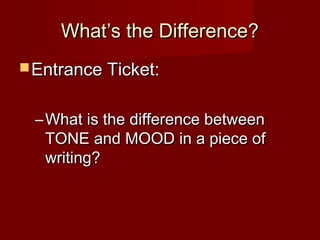
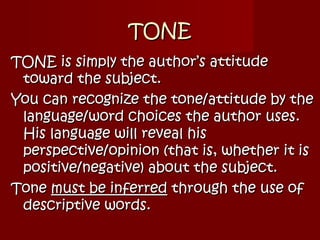
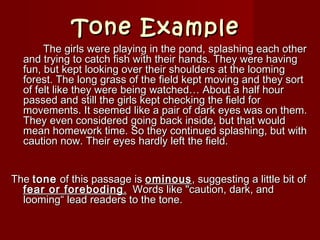
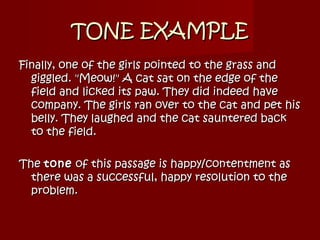
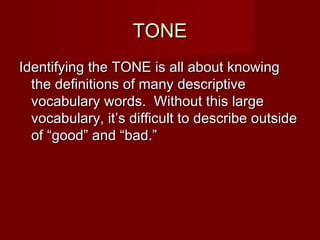
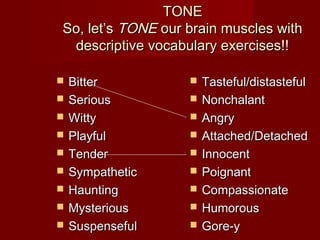
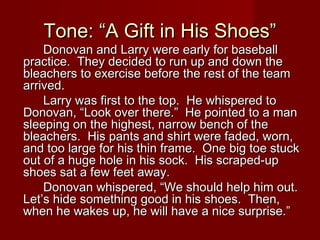
![Tone: “A Gift in His Shoes”Tone: “A Gift in His Shoes”
How would you describe the tone [attitude]How would you describe the tone [attitude]
of this author?of this author?
a.a. AngryAngry
b.b. DetachedDetached
c.c. SympatheticSympathetic
Evidence?Evidence?](https://image.slidesharecdn.com/toneandmood-170130124000/85/Tone-and-mood-9-320.jpg)

![Tone: “Where Can They Stay”Tone: “Where Can They Stay”
How would you describe the tone [attitude]How would you describe the tone [attitude]
of this author?of this author?
a.a. DisgruntledDisgruntled
b.b. NonchalantNonchalant
c.c. SeriousSerious
Evidence?Evidence?](https://image.slidesharecdn.com/toneandmood-170130124000/85/Tone-and-mood-11-320.jpg)
